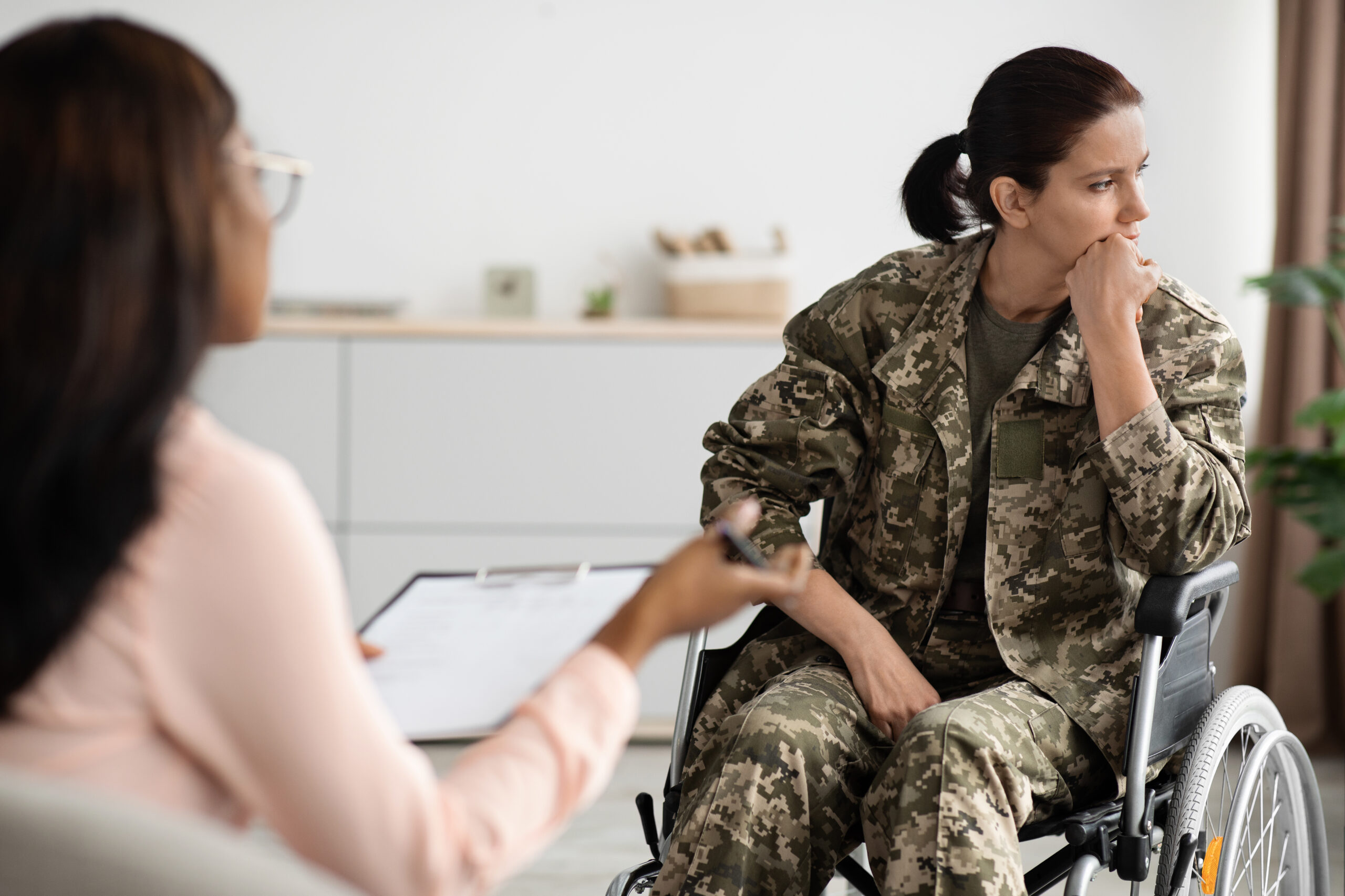Does the VA Cover Mental Health?
Veterans often struggle with mental health disorders upon return from the service. Services can be provided to veterans, like therapy, medication, or a mental health treatment facility to better mental health and find recovery from mental health disorders.
There are many mental health resources available to veterans. However, determining what services are covered by the United States Department of Veterans Affairs (VA) can be challenging. The VA provides mental health care through its care services. In addition, veterans can receive mental health care from providers in partnership with the VA.
Veterans and Mental Health
According to recent census reports, there are currently 18 million veterans along with 2.1 million active-duty and reserve members in the U.S. Serving and working in the military comes with various stressors that can negatively impact a person’s mental health. Data from the National Alliance on Mental Illness (NAMI) indicate about 1 in 4 active duty military members show symptoms of a mental health problem.
NAMI indicates the three most common mental health conditions in military members are:
From fighting in combat situations to making decisions that cause moral injury, exposure to conditions that are uncommon to civilians puts military members in a unique position regarding mental health. When veterans return to civilian life, getting the support they need can be challenging.
Post-Traumatic Stress Disorder
Traumatic events, like a violent assault or military combat, can overwhelm a person’s positive coping skills. In many cases, veterans will walk away from military service with PTSD. Numbers taken from the U.S. Department of Veterans Affairs indicate that:
- About 20% of veterans who served in Enduring Freedom have PTSD.
- Approximately 12% of veterans from the Gulf War have been diagnosed with PTSD.
- Roughly 30% of Vietnam vets have struggled through PTSD sometime in their lifetime.
- Currently, 15% of Vietnam veterans still have PTSD.
PTSD can occur in anyone who experiences trauma. However, veterans and other individuals in the military experience PTSD at higher rates than the general population.
Depression
The rate of depression in military members is five times that of the civilian population. More than sadness, depression is an overpowering and dangerous condition, especially for veterans. Sadly, each day roughly 18 to 22 veterans commit suicide.
Military members may find it hard to identify their depression. They may mask their depression with anger or irritability. Or they may try to self-medicate, leading to a substance use disorder.
Traumatic Brain Injury (TBI)
A significant blow to the head can result in a traumatic brain injury, also known as a TBI. A TBI may occur while in combat. However, TBI may also happen during training. The symptoms of TBI are headaches, memory problems, fatigue, or sudden and significant mood changes.
Because the symptoms of TBI can appear like other mental health conditions like bipolar disorder or dementia, individuals need to obtain a thorough assessment from a trained professional.
Addiction in the Military
The military environment celebrates camaraderie and team-building but also fosters substance use disorders. For example, approximately 1 in 13 veterans have had alcohol and illegal drug problems.
Other numbers also indicate that substance abuse is prevalent among military members:
- About 25% of veterans have had issues with illegal drug use.
- Roughly 4 out of 5 veterans have had problems with alcohol.
- Approximately 21% of veterans addicted to opioids have experienced an overdose.
- The rate of heavy alcohol use is higher among veterans (7.5%) than among civilians (6.5%).
Data indicates that veterans with a substance abuse disorder were 3 to 4 times more likely to have depression or PTSD. The stress and trauma of being in the military can be overwhelming, thus leading to addiction and problems with mental health. Receiving mental health treatment can improve all military members’ quality of life.
Barriers to VA Mental Health Care
Military members may find the stigma of mental illness a barrier to seeking mental health care. For example, surveys from the Rand corporation found that 28.6% of army veterans did not seek treatment due to embarrassment. The same group of army veterans also did not want to be seen as weak (48.9%). The belief that seeking treatment for mental illness is weak can keep military members who need treatment from getting help.
Mental Health Services for Veterans
One of the benefits of being in the military is its healthcare. The U.S. Department of Veterans Affairs (VA) covers mental health services to treat the abovementioned conditions. The VA also covers a broad range of mental health services for outpatient and inpatient VA mental health settings and participating mental health care facilities.
Although VA centers strive to help all military members, the available services at the VA may surpass the needs. To expand mental health treatment for veterans, the VA covers VA mental health care at participating centers.
For example, only 30 percent of veterans enrolled in VA health obtain their care from the VA. The other 70 percent receive care from providers outside the VA. Choosing treatment from a non-VA provider does not compromise care. In fact, it is a common practice amongst military members.
Quality of Care
When veterans get mental health care from the VA or a private setting, the quality is the same. Private settings enable military members to access high-quality care using VA benefits. For example, the VA Veterans Choice Program lets eligible veterans obtain mental health care from community-based non-VA providers. Military members can receive the same or better quality care in private settings.
When choosing a non-VA provider, it’s essential to find professionals knowledgeable about military life. These mental health professionals should be familiar with the specific concerns of being a veteran. Treatment by professionals who understand the expectations of the military enables veterans to speak freely and receive quality mental health care.
Mental Health Treatment for Veterans in San Diego, CA
The VA provides healthcare to veterans that can include mental health benefits. After the service, veterans can often be diagnosed with mental health disorders. To receive the best chance of long-term recovery, veterans can receive treatment for mental health, including therapy and medication as needed.
Solara Mental Health in San Diego, California, offers veteran mental health services. Contact us today if you or a veteran you love are struggling with mental health. Our team can answer any questions you may have and give you a better understanding of our veteran mental health treatment program.






